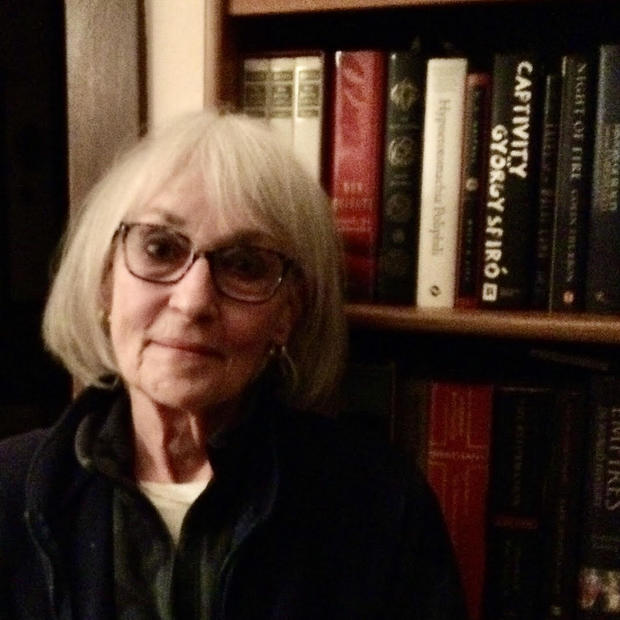Earlier this week, Geoffrey Canada, leader of Harlem Children’s Zone (HCZ) for the past 20 years, charmed a packed UW audience even as he delivered a dire warning about American education: “There is no way we can continue to be a superpower if we continue to treat our children the way we do.”
Canada, speaking on Tuesday night (Feb. 9), cited a disturbing statistic from Ready, Willing, and Unable to Serve, a November 2009 report from a group of generals and admirals who were recognized for their work by Secretary of Education Arne Duncan: 75% of American youth are ineligible for military service because they failed to graduate from high school, were convicted of crimes, or are mentally or physically unfit. The recommendation proposed by these military officers? “High-quality early education for at-risk kids. It … helps kids stay away from crime and succeed in life.”
Canada wholeheartedly agreed. “There’s a connection between what's happening in our schools and in our jails. In 1972, 300,000 people were in American jails. Today it’s 3.4 million. We lock up more people per capita than any place in the world. The ‘Evil Empires’ aren't even close.” Yet while the prison population soars, our schools remain mediocre or worse. “If you want to see the future of America, look at our children right now. It scares me. I don't see how 50 years from now we maintain the life we have.”
Talking with America’s leaders about improving schools has not reassured Canada. “I've met with presidents, secretaries of education, and directors of public policy, and there is no plan. Nobody’s coming to save us. Education right now is a national Katrina, and nobody's coming to help. If we don’t fix it, the children simply will not make it.”
Twenty years ago in Harlem, Canada and others decided it was up to them to save their children. Making a plan was the easy part, he told the audience. “We just drew an arbitrary line around a bunch of city blocks.” Today HCZ protects almost 100 blocks in Harlem with a safety net its children can’t fall through. They and their families are tracked and helped from the time the children are born until they finish college. Said Canada, “At Baby College parents learn that language acquisition is increased when they explain things to their 2-year-old instead of just trying to make him behave.” As the toddler grows, the HCZ preschool brings him up to grade level for kindergarten, where he’s readied for Promise Academy charter schools. At every stage, said Canada, “You got to keep kids on grade level,” and with the help of HCZ’s College Success Office, the support continues until graduation from college.
Why not redesign American schools to help all students succeed in this way? “If year after year after year the same schools are failing too many kids, there's gotta be a design flaw,” Canada said. A major one is assuming that “kids will catch up if they start behind. If a train leaves Seattle at 8 am traveling north at 30 mph, and another train leaves at 5 pm traveling north at 30 mph, when is train B going to catch train A? Never.”
Redesigns are expensive, and teachers will have to work longer. “Government doesn’t like the one, and unions don’t like the other,” said Canada. These entities point to the few public schools here and there that truly have educated disadvantaged kids without undergoing a makeover, but why were those isolated examples successful? “There was a crazy person in charge!” — an insanely driven visionary. “You can't build craziness. But you can build accountability. If the kids don't learn, the adults have to leave. They can't keep taking the money. Treat teachers like professionals … Pay them lots of money, and work them very hard. Those who do well get to stay. The others get weeded out.” Testing must also be used differently. As things stand, “the moment the test is given, education stops. No one says ‘Oh, you're struggling with this. Let's work on it.’ ” Teachers should test to learn what kids don’t know, “and then teach them, not just go home for the summer.”
Schools can't do it alone, said Canada. They need “a community actively interested in the development of healthy children. So you have to create environments where families can thrive.” This means, for one thing, connecting social services with schools. “Build a comprehensive set of supports around kids. It’s standard stuff,” but “while everybody else was talking ‘comprehensive,’ ‘long term,’ ‘integrated,’ we did it. If you do it, it will work,” he assured the audience. “It’s not that hard, not that complicated.”
He warned that change will be resisted. Schools “have not allowed innovation to take root. We have industries totally opposed to charter schools. Education is a huge machine, and the damn thing doesn't work,” but still they tell you “you can't do something else.” Outside education, “if stuff doesn't work it goes. Like Palm Pilots. Gone. We get rid of inventions that don’t work. Why can't we do this in schools?”
The President isn’t going to change things, Canada concluded. “Nobody will change things except us.” We’re the only ones who can change the school calendar or the way children are taught and supported. But “we can’t just keep doing the same thing and think it will work.”
“We believed Harlem could change,” Canada said. “Nobody else believed it. We started with one block, and they said you only got that one done because Mother Pearl was there. By the time we got three blocks, people started to believe.” Despair is contagious, “like a virus,” but so is hope, said Canada. In 2009 Harlem Children’s Zone served 10,462 youths and 10,817 adults.


